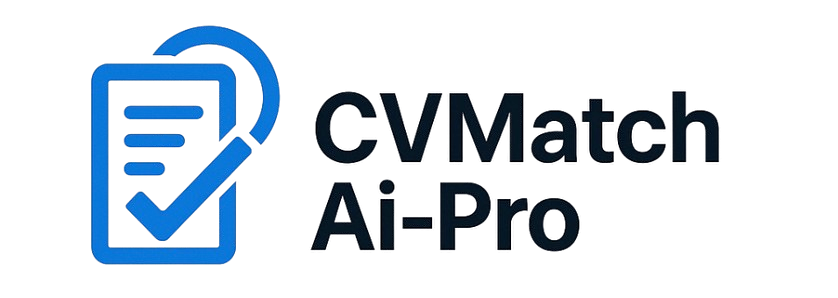Why Your Recruiting Methods Must Evolve with AI
The world of recruitment is undergoing a seismic shift. Traditional hiring methods are no longer sufficient in a market where speed, precision, and candidate experience are paramount. Artificial intelligence (AI) is not just an option anymore—it’s a necessity. Let’s explore why evolving your recruiting strategies with AI is critical to staying competitive in 2025 and beyond.
The Shortcomings of Traditional Recruiting Approaches
Despite decades of evolution, many recruitment practices still rely on outdated processes. Manual screening, subjective evaluations, and inefficient workflows hinder companies’ ability to attract, engage, and hire the best talent.
Slow and Inefficient Processes
- Traditional hiring cycles are lengthy, often resulting in top candidates accepting offers elsewhere before decisions are made.
- Manual tasks like resume screening and initial outreach consume valuable recruiter time and resources.
- Delays frustrate candidates, damaging employer brand and reducing the chances of successful hires.
Subjectivity and Bias
- Without standardized evaluation tools, hiring decisions are heavily influenced by unconscious biases and inconsistent judgment.
- Subjective processes limit diversity and inclusion efforts, affecting organizational culture and innovation.
- Bias-driven hiring leads to suboptimal matches between candidates and roles, increasing turnover rates.
How AI is Transforming Recruitment Today
AI technologies are not replacing recruiters—they are empowering them. By automating repetitive tasks and providing data-driven insights, AI enables recruiters to focus on what matters most: building relationships and making strategic hiring decisions.
Automated Screening and Shortlisting
- AI tools quickly analyze resumes, identifying the most qualified candidates based on skills, experience, and role fit.
- Intelligent ranking systems prioritize applicants, helping recruiters focus their efforts on top-tier talent.
- This automation shortens the initial screening phase, accelerating the entire hiring process.
Predictive Hiring Analytics
- Predictive models assess candidates’ future performance potential, offering deeper insights beyond resumes and interviews.
- Data-driven predictions improve hiring quality by aligning candidate strengths with long-term organizational needs.
- Recruiters can proactively build talent pipelines based on future business demands rather than reactive hiring.
Enhanced Candidate Engagement
- AI-driven communication tools personalize candidate outreach and automate follow-ups, improving response rates and experience.
- Chatbots and virtual assistants provide real-time support, keeping candidates informed and engaged throughout the process.
- Better engagement fosters stronger relationships with candidates, even those not immediately selected.
Key Benefits of Adopting AI in Recruitment
Companies that integrate AI into their recruitment strategies experience measurable improvements across multiple metrics, from time-to-hire to candidate satisfaction and retention rates.
Faster Hiring Cycles
- Automated screening and scheduling speed up each stage of the hiring funnel, enabling companies to make offers faster.
- Faster hiring reduces the risk of losing top candidates to competitors and minimizes revenue loss from vacant roles.
- Shorter cycles also boost recruiter productivity, allowing them to manage more requisitions simultaneously.
Improved Hiring Quality
- AI enhances matching accuracy, leading to better job fit and higher employee performance over time.
- Predictive analytics help identify candidates who are not just qualified but also culturally aligned with the organization.
- Improved hiring decisions translate into lower turnover rates and stronger teams.
Stronger Diversity and Inclusion
- Objective algorithms reduce unconscious bias, promoting a more diverse and inclusive workforce.
- AI tools expand sourcing to a broader pool of candidates, uncovering talent from underrepresented groups.
- Enhanced diversity drives innovation, resilience, and market competitiveness.
The Future of Recruiting: AI as a Strategic Partner
AI’s role in recruitment will only grow in sophistication and influence. Forward-thinking organizations are already positioning AI as a strategic ally, using its capabilities to anticipate talent needs, optimize hiring strategies, and drive business growth.
Workforce Planning and Talent Intelligence
- Advanced AI platforms integrate workforce analytics to predict skill gaps and future hiring needs.
- Talent intelligence tools help organizations map internal and external talent markets for strategic decision-making.
- Recruiters will evolve into talent advisors, using AI insights to guide business leaders in building high-performing teams.
Continuous Innovation and Adaptation
- AI technologies will continue to evolve, offering new capabilities such as emotional intelligence assessments and cultural fit analysis.
- Organizations must remain agile, continuously refining their recruiting processes to leverage emerging AI tools.
- Those who adapt quickly will maintain a competitive edge in attracting and retaining top talent.
Conclusion
In a rapidly changing world, clinging to traditional recruiting methods is a recipe for falling behind. AI offers a powerful opportunity to evolve hiring practices, delivering faster, fairer, and more effective outcomes. Recruiters who embrace AI today are setting themselves—and their organizations—up for long-term success in the future of work.
